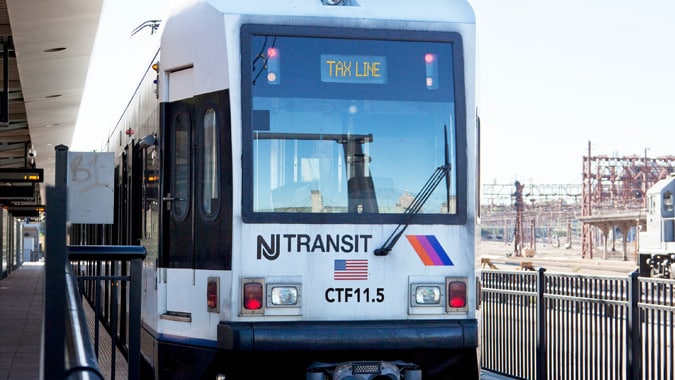As detailed in an NJBIA infographic this week, there are too many reasons why Gov. Phil Murphy’s proposed $1 billion Corporate Transit Tax is bad for New Jersey job creators, workers and consumers.
But as it relates to the biggest hits on impacted companies outside of giving us the highest and least competitive corporate tax rate in the nation, you can narrow the 2.5% Corporate Transit Tax damage down to three key points:
It’s permanent (for now), not temporary
When he proposed the new business tax during his FY25 budget address, essentially returning New Jersey’s largest businesses to the highest corporate tax rate in the nation, Murphy said it would be a permanent dedication to fund NJ TRANSIT.
Since then, he has publicly stated it will be temporary – as the temporary 2.5% Corporate Business Tax surtax was supposed to be.
“If we’re going to have the highest corporate tax in the nation, by far, on a permanent basis, that does not bode well at all for the future of our economy, to put it plainly,” said NJBIA Chief Government Affairs Officer Christopher Emigholz.
“You can talk about growing the innovation economy or all the positive things you’re trying to achieve. But when you have a permanent 11.5% corporation tax that is an extreme national outlier, on top of our other high business taxes, and you have regional competitors going in the opposite direction for corporate taxes, you’re providing an unmovable stumbling block for companies to want to come here or grow here. It’s illogical.”
Emigholz also said that the move to permanent instead of temporary almost amounts to a “double hit” by impacting publicly traded corporations’ balance sheets and stock values, that could be just as bad or possibly worse in some ways than the cash they lose to the state.
There have been rumors of the Murphy administration floating a temporary Corporate Transit Tax for as much as nine years, but Emigholz said that would not be enough of an improvement to help with the balance sheet issue.
“We just came off what was supposed to be a temporary 2.5% surtax that lasted six years, with a promise that it would be sunset,” he said. “So, adding another nine years of ‘temporary’ would not be any kind of concession at all and it would still impact financial reporting.”
The CTF is ‘retroactive’ to Jan. 1
This detail just sounds like the most business unfriendly.
In announcing the Corporate Transit Tax in February, Murphy said the 2.5% surtax would be “retroactive” to Jan. 1, 2024 – or one day after the sunset of the prior temporary 2.5% Corporate Business Tax surtax.
That means, if the tax is a part of the final FY25 budget, the estimated 600 corporations hit by it will have to restate their financials for the first two quarters of the year that they already paid taxes because of a broken promise by the governor.
“These are companies who based their 2024 financial projections on a statutory sunset and a commitment made by the administration and now have a budget in place,” he said.
“As such, they planned for this money elsewhere in their budget and now must restate their financials to show this as a liability. Wall Street is not fond of restatements and as such, the downstream impacts may also affect these companies, and everyone invested in them, including company and state pension and investment funds.
“And in a world where we probably overuse the terms ‘fair’ and ‘unfair,’ a retroactive tax increase just seems truly unfair,” Emigholz said.
11.5% vs. (9% + 2.5%)
Essentially this is a discussion of a whole tax rate versus a combination of two different taxes and rates.
While Emigholz said there is nothing good about New Jersey businesses being hit with an 11.5% corporate tax, it would be softened at least somewhat if it was counted as a (hopefully) temporary new tax bracket of 11.5% for corporations with more than $10 million in net income, rather than a 9% corporate tax and a separate 2.5% surtax or transit tax as was the case with the previous surtax.
“The prior 2.5% surtax did not allow for credits or tax offsets that are available to businesses on the original 9% corporate tax rate, and if this new Corporate Transit Fee is treated as a new separate tax like the expired surtax, all the credits and tax offsets in law would not apply to the additional 2.5%.
“New Jersey legislators and governors over the years have put into law tax benefits to encourage business investment in things such as research and development and/or locating in low-income areas. So why would anyone want a separate surtax that abandons those past public policy decisions that seemed to make sense,” Emigholz said.
As Murphy and the Legislature approach the constitutional state budget deadline and finalize budget negotiations over the next few weeks, Emigholz said “NJBIA hopes everyone understands what is at stake with this proposed business tax increase that is anti-growth and short-sighted for too many reasons.”




